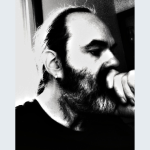4 Things Henry Ford and Modern-Day Startup Founders Have in Common

Commitment to Our Readers
GOBankingRates' editorial team is committed to bringing you unbiased reviews and information. We use data-driven methodologies to evaluate financial products and services - our reviews and ratings are not influenced by advertisers. You can read more about our editorial guidelines and our products and services review methodology.

20 Years
Helping You Live Richer

Reviewed
by Experts

Trusted by
Millions of Readers
Startup founders share a common sense of adventure in that they risk a considerable amount of personal time and resources to bring their visions to life — and to market. Henry Ford, for example, is widely known for his insights and innovations. Ford’s vision transformed the manufacturing process and brought the individual car to the common person.
When thinking of today’s most successful startup founders, names like Mark Zuckerberg, Jeff Bezos and Barbara Corcoran come to mind. Though innovation may look different across time and various industries, all three found success by approaching opportunities in ways that no one had tried before. Here are four other things that modern-day startup founders share with Henry Ford.
They See Potential
Before Ford, automobiles were rare and owned only by the most affluent. Ford saw the potential that a mass-produced, affordable personal car could have and revolutionized manufacturing to get it done, making cars accessible to everyday people for the first time.
Zuckerberg also saw potential where others missed it, this time in an untapped desire for social connection. By creating Facebook, he changed the way people communicate, share information and stay in touch.
Corcoran saw the potential appeal that personalized, trust-based real estate services would have for a certain segment of the real estate market. By establishing The Corcoran Group as a leader in luxury homes and condominiums in New York City, Corcoran tapped into that market segment.
They Think Big
Success is, in part, about the journey from where you are to where you want to be. Every startup begins with a limited budget and limited scope, but when the founders have big visions, surprising things can happen.
Ford was so obsessed with lowering production costs through efficiency that he invented the assembly line. It would not only bring his idea of affordable cars to market, but also revolutionize industrial manufacturing.
It’s not unlike how Zuckerberg saw a way to leverage Facebook’s network on an international scale and support the innovations required to connect billions of users. Corcoran, meanwhile, scaled her real estate business from a small $1,000 loan to an empire of agents, clients and real estate holdings.
They’re Disruptors
You can’t innovate without changing the way things are done, and Ford, in that sense, may have been the first disruptor. Ford fundamentally changed the way automobiles were made and set new standards for efficiency and production. The assembly line is still the standard approach to large-scale manufacturing despite over a hundred years of technological advancements.
Bezos first disrupted bookstores, then retail in general, with Amazon, changing the way people shop. Like Ford, his obsession with efficiency led to Amazon warehouses where workers rush to stock orders alongside robots, and every movement and activity is tracked in an effort to find any inefficiency.
Zuckerberg, in changing how we communicate and share information, disrupted not just social interaction but online media and connectivity itself. Many people now get their news from Facebook, follow local communities or interest groups, and keep in touch with friends and family by sending frequent messages.
They Give Back
Ford founded the Ford Foundation, an organization tasked with improving social welfare through educational efforts. Other successful startup founders are similarly moved to act for the common good through a number of different organizations and initiatives.
Bezos pledged $10 billion toward efforts to mitigate or reverse the effects of climate change, while Zuckerberg co-founded the Chan Zuckerberg Initiative, which supports initiatives in education across science and technology.
In an ideal world, every person who attains remarkable personal wealth would feel a similar sense of responsibility to pay back the society that made their success possible. A commitment to giving back is key to understanding that affluence is best used for positive societal change.
This is another area where founders show vision — paying it back. They understand that great personal success and wealth are dependent on far more than just one person or individual efforts.
 Written by
Written by  Edited by
Edited by 

























